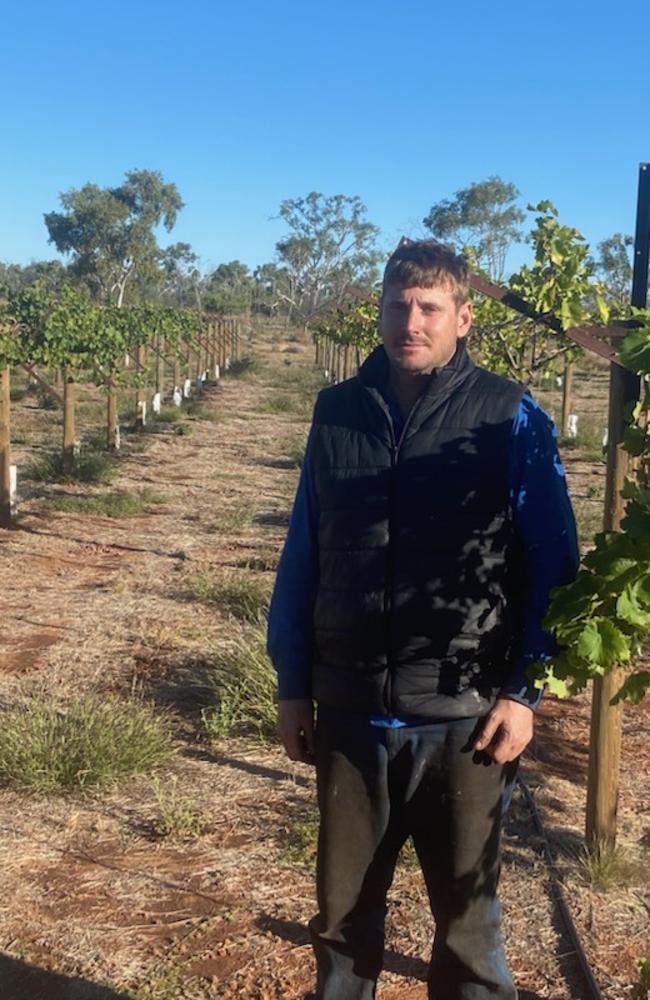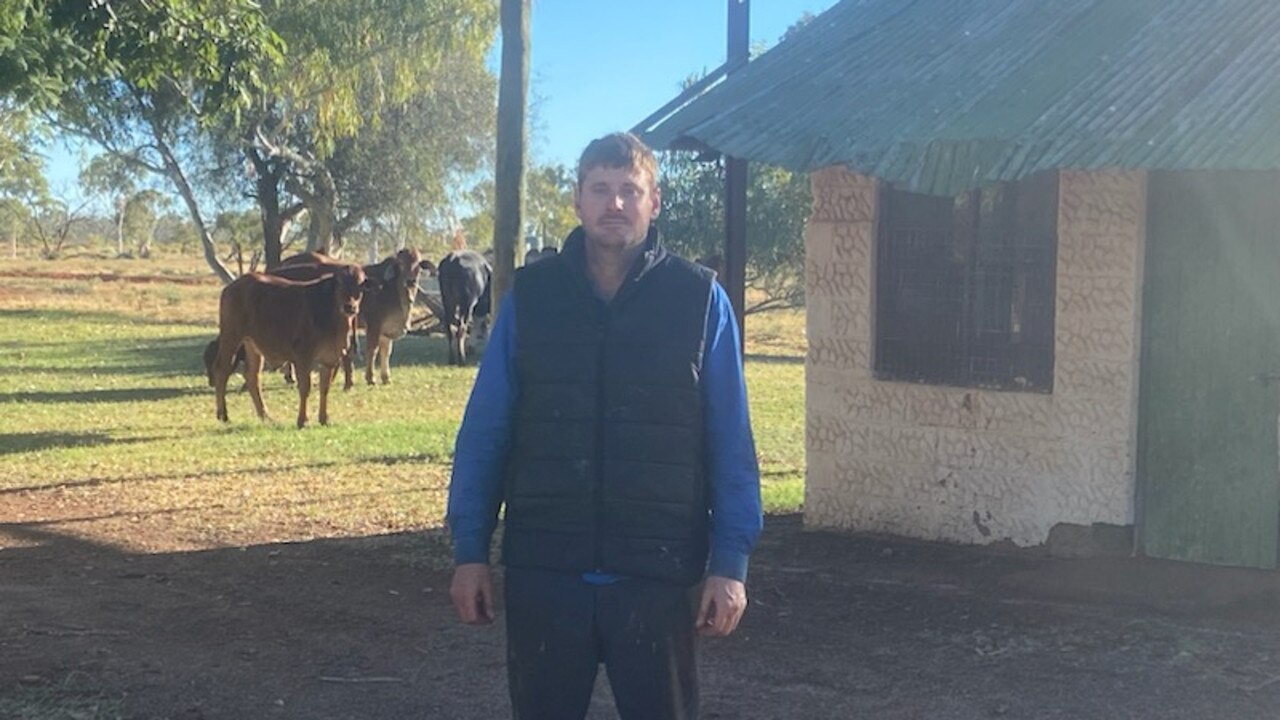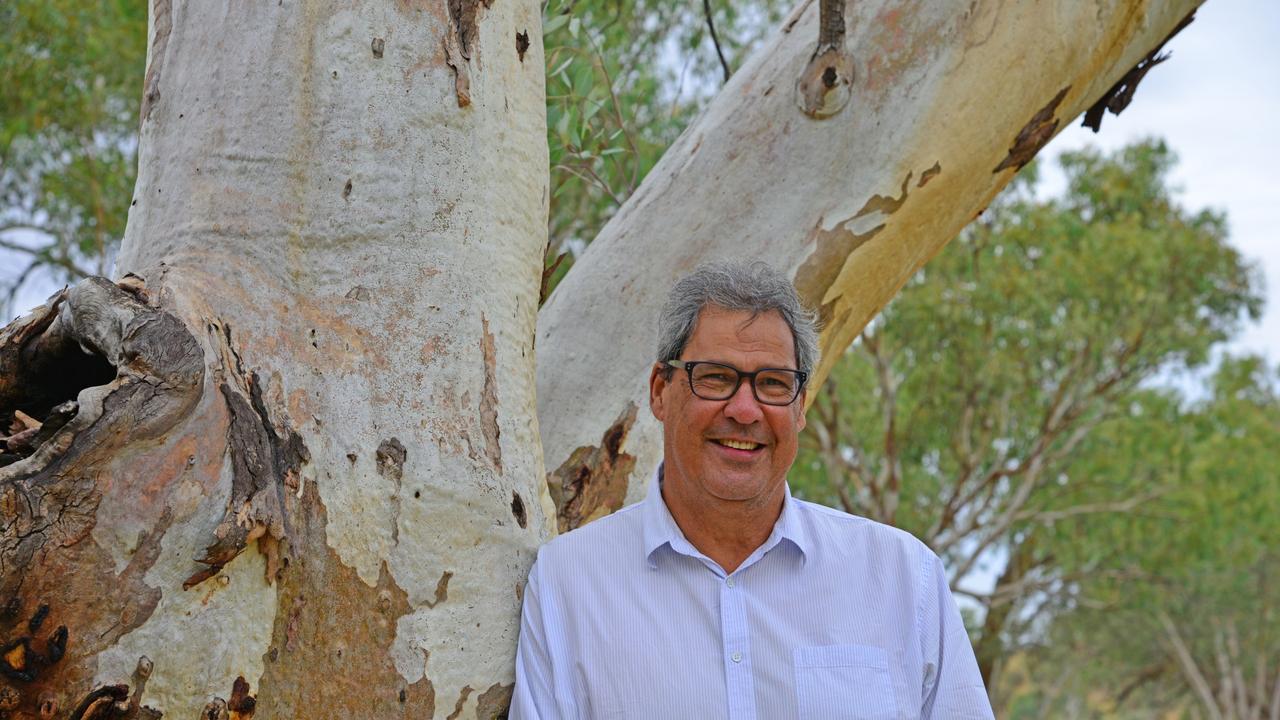Orchard pilot project bearing fruit as water licence issue drips on
Issues with the Singleton Station water licence have not stopped the developers of a $250m regional orchard project. Read why they’re persisting.
Trial plantings at Fortune Agribusiness’ Singleton Station orchard project are being pruned and de-suckered a healthy five times a year as data for the $250 million project continues to grow.
Fortune has a 0.4ha plot for trial plantings a two-minute walk from the station homestead where results indicate strong tree and fruit growth with grapes proving the most bountiful.
Fortune wants to develop a 3300ha orchard on the 2949sq km Singleton cattle station, which the company estimated could bring $200m economic benefit a year to the Territory including over 420 direct and indirect jobs in the permanent workforce and 1350 seasonal jobs, meaning a considerable economic boost to the Barkly and the NT.
First plantings in the pilot were October 2021 with additions in November including mandarins, oranges, grapefruit, limes, jujube, dried and table grapes, avocadoes and agave.

The NT already has a productive horticultural sector with mangoes, Asian vegetables, melons, vegetables, grapes, tropical fruit, ornamental plants, pastures and fodder crops.
With the trials expected to continue until at least late 2024, Singleton is data sharing with the Department of Industry, Tourism and Trade.
The Stainkey family has leased Singleton from Fortune Agribusiness for the past seven years after selling the decades-old station to the orchardist.
Will Stainkey, who expects he will eventually follow his parents to Queensland, still works the station and checks in on the irrigation at the Fortune trial plot.
“Fortune came to us and said it wanted to develop the water side of things,” he said.

“Singleton’s been known for a number of years for the water beneath it. It’s good for cattle too but the potential has always been there.”
Some bores on the property are as low as 6m.
Will recalls the family vegetable garden didn’t require pesticides, one of a number of reasons Fortune identified Central Australia as the ideal location.
Sunshine, low-humidity, mild to cold winters and water availability were also on the list.
Water has fuelled debate around the project, which the NT government believes will generate jobs and economic activity in a key regional centre.
The Territory Economic Reconstruction Committee (TERC) report called for the NT economy to diversify and the Fortune project does that.

Focus in particular has been on the maximum 40GL extraction licence approved by the NT government, which was almost half the 87.7GL allocated for agriculture in the 2016-2018 water allocation plan.
Fortune said under this water allocation plan, 40 GL (just 0.03 per cent) of the water in the huge Western Davenport aquifer system was made available for Singleton Fortune, based on stringent monitoring of each project stage to support this.
Fortune said the Central Land Council sat with it during meetings of the water advisory committee that provided input to the NTG’s water allocations for the Western Davenport Water Control District.

It said 26GL, also a substantial amount, was allocated exclusively for Aboriginal usage.
In September the Mpwerempwer Aboriginal Corporation lodged a Supreme Court challenge to set aside then Water Minister Kate Worden’s water licence approval. The matter is still being worked through the courts.
Central Land Council chief executive Les Turner said Fortune had not negotiated with the company in a “meaningful way”.
He said during the initial September 2019 meeting no details were given about the size of the water license and that TOs and participants in local meetings were not given an opportunity to consent to what they’d been told.
“To call this consultation is a laughable misrepresentation.”
Fortune chairman Peter Wood wants to work closely with local Traditional Owners.
“We want to make sure their interests are incorporated in the final design of the farm and that they can benefit directly from the project,” he said.
Information supplied by Fortune shows a number of stakeholder engagements with CLC, Mpwerempwer and other stakeholders from August 2019 (see fact box).
“The development of Singleton farm has the potential to transform the Barkly region, contribute significantly to the NT’s goal of a $40bn economy by 2030, and improve food security.
“The government’s rigorous water planning and staged project approval processes will ensure this new farming precinct is developed sustainably.
“We look forward to having further consultation with Native Title holders, Elders, and the Ali Curung local community, with assistance from the Central Land Council, to ensure that local people can be fully informed and share the benefits and opportunities that will flow from Singleton farm.”
More Coverage
Originally published as Orchard pilot project bearing fruit as water licence issue drips on





